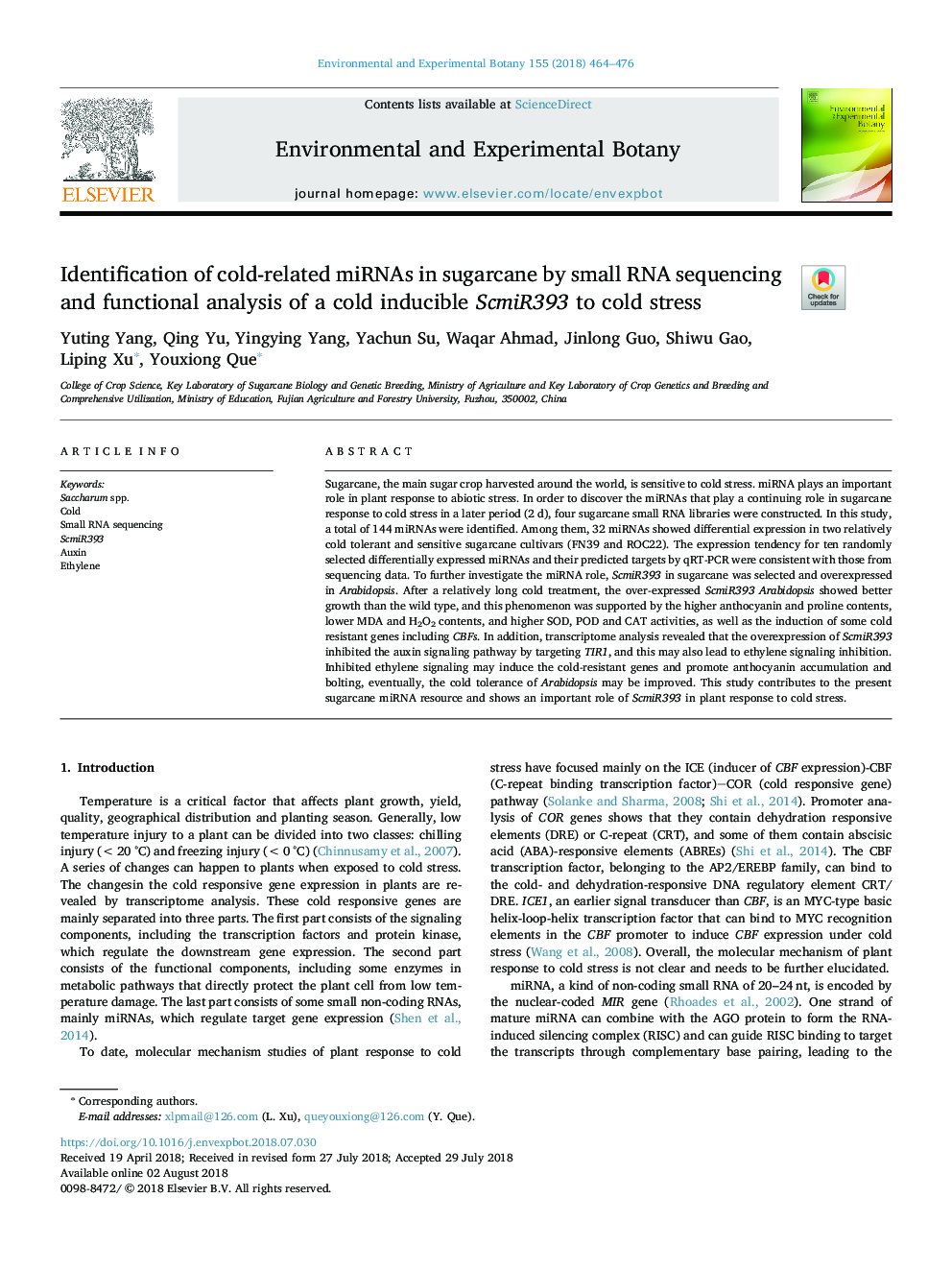| Article ID | Journal | Published Year | Pages | File Type |
|---|---|---|---|---|
| 8886889 | Environmental and Experimental Botany | 2018 | 13 Pages |
Abstract
Sugarcane, the main sugar crop harvested around the world, is sensitive to cold stress. miRNA plays an important role in plant response to abiotic stress. In order to discover the miRNAs that play a continuing role in sugarcane response to cold stress in a later period (2 d), four sugarcane small RNA libraries were constructed. In this study, a total of 144 miRNAs were identified. Among them, 32 miRNAs showed differential expression in two relatively cold tolerant and sensitive sugarcane cultivars (FN39 and ROC22). The expression tendency for ten randomly selected differentially expressed miRNAs and their predicted targets by qRT-PCR were consistent with those from sequencing data. To further investigate the miRNA role, ScmiR393 in sugarcane was selected and overexpressed in Arabidopsis. After a relatively long cold treatment, the over-expressed ScmiR393 Arabidopsis showed better growth than the wild type, and this phenomenon was supported by the higher anthocyanin and proline contents, lower MDA and H2O2 contents, and higher SOD, POD and CAT activities, as well as the induction of some cold resistant genes including CBFs. In addition, transcriptome analysis revealed that the overexpression of ScmiR393 inhibited the auxin signaling pathway by targeting TIR1, and this may also lead to ethylene signaling inhibition. Inhibited ethylene signaling may induce the cold-resistant genes and promote anthocyanin accumulation and bolting, eventually, the cold tolerance of Arabidopsis may be improved. This study contributes to the present sugarcane miRNA resource and shows an important role of ScmiR393 in plant response to cold stress.
Related Topics
Life Sciences
Agricultural and Biological Sciences
Ecology, Evolution, Behavior and Systematics
Authors
Yuting Yang, Qing Yu, Yingying Yang, Yachun Su, Waqar Ahmad, Jinlong Guo, Shiwu Gao, Liping Xu, Youxiong Que,
